9/11: Ten Years Later
Gateway House has prepared a report analysing the security system in the U.S. post 9/11, its implications on the world as we knew it, and the lessons to be learnt by India.
 Courtesy: Gateway House
Courtesy: Gateway House
Gateway House has prepared a report analysing the security system in the U.S. post 9/11, its implications on the world as we knew it, and the lessons to be learnt by India.
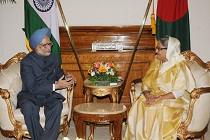 Courtesy: PMO
Courtesy: PMO
Indian Prime Minister Manmohan Singh’s visit to Dhaka was, by and large, a success; but poor internal coordination hampered the greater possibilities of the visit. India and Bangladesh can now explore new prospects, on maritime issues, oil and gas and environmental concerns in the Sundarbans.
Former Indian Ambassador to Syria, Rajendra Abhyankar, speaks to Gateway House’s Samyukta Lakshman about the developments in Syria, the impact on India-Syria relations and the future of the region.
 Courtesy:
Courtesy:
A decade after 9/11, the U.S. has prevented further terrorist attacks - a major achievement. But with a $1.3 trillion budget deficit, a debt downgrade, and 24 million Americans searching for jobs, the U.S. needs to attend to matters at home rather than intervening in the world's affairs.
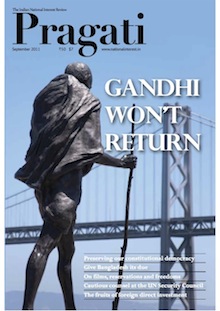 Courtesy: Pragati
Courtesy: Pragati
India has pursued a careful, well-thought out policy to prove that it can be a responsible permanent member on the UN Security Council.
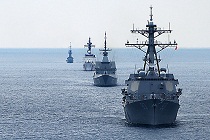 Courtesy: SurfaceForces/Flickr
Courtesy: SurfaceForces/Flickr
The turbulent waters of the South China Sea may soon see a major addition: an aircraft carrier, from China. The carrier - already seventy percent complete - is sure to change the equation and further Beijing's Four Modernisations programme.
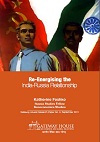 Courtesy: Gateway House
Courtesy: Gateway House
This paper assesses the India-Russia relationship in today’s context and explains why it is time for the two countries to re-energise the bilateral
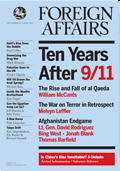 Courtesy: Foreign Affairs
Courtesy: Foreign Affairs
In 2001, fearing ethnic strife, the international community pushed for a strong central government in Kabul. But such fears fostered a system of regional and ethnic patronage. To correct matters, the U.S. should de-emphasize Afghanistan’s ethnic fault lines and push for more devolved and inclusive governance.
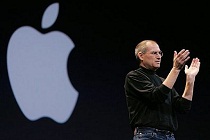 Courtesy: Marco Paköeningrat/Flickr
Courtesy: Marco Paköeningrat/Flickr
“What Now?” asked the headline on the front page of the San Franciso Chronicle, the day after Steve Jobs stepped down as CEO of Apple. After more than a decade of technological ascendancy by Jobs and Apple, where and who now will the world look towards for the next creative breakthrough?
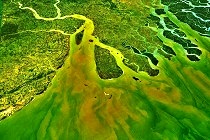 Courtesy: Rex/WikimediaCommons
Courtesy: Rex/WikimediaCommons
While the fractious Indo-Bangladesh relationship has made progress over the past few months, both sides must engage in environmental diplomacy in the vulnerable Sundarbans region to ensure bilateral prosperity.